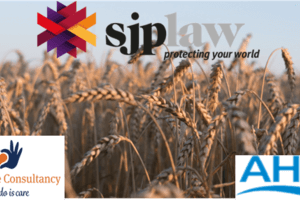This is the third article in our series on achieving the maximum value from your park business. In this article we look at whether incorporation is the next step for your park business.
We tend to see that many family owned and owner managed park businesses continue to operate using a partnership structure. Whilst many larger holiday parks have been trading as limited companies for years, a corporate structure can be very advantageous to your park business regardless of the size, and will help to maximise the sustainability and profitability of your park business now and in the future.
What are the advantages to incorporation?
1. Limited liability
A sole trader is personally liable for all the debts and obligations of his business.
In a partnership each partner is jointly liable with the other partners for all the debts and obligations of the partnership incurred whilst he is a partner and is jointly and severally liable with the other partners for loss or damage to third parties occasioned by the wrongful acts or omissions of any of the other partners. Liability may extend after retirement.
However, in a limited company the shareholders are not normally personally liable to the creditors for a company's debts. A shareholder is only under an obligation to pay the company in respect of his shares, and such sum shall be no more than the amount he undertook to pay by subscribing for the shares on incorporation or which was payable under the terms of a later allotment of shares.
2. Succession planning and continuity
A limited company enables the owners to divide, proportion and transfer the ownership of the business through the amount of shares each shareholder owns. This can be much easier than trying to divide or transfer ownership in a partnership or other business medium. Differing proportions of ownership of the business can be given to future generations or junior shareholders by transferring or allotting only a certain number of shares.
The continuance of the company and of its business is unaffected legally by changes in the share ownership of the company whether by death or transfer of shares.
3. Flexibility over shareholder rights and dividends
Having ownership of the business reflected in share capital held by the shareholders gives greater flexibility to create a range of different rights for individual shareholders, which would be much more difficult in a partnership situation. Such rights could include voting rights for senior shareholders but not for junior shareholders and the possibility of differing levels of dividends (or profit share) being paid out on the shares held by different shareholders.
4. Number of shareholders
At least one person must act as a subscriber for the formation of a company under the Companies Act 2006 but there is no upper limit to the number of shareholders a company may have.
5. Transferability of shares
In the absence of restrictions imposed by the company's Articles of Association or by which he has otherwise undertaken to be bound, a shareholder is free to transfer all or part of his shares in a company in the manner provided by the Articles. It is usual however, for the Articles to authorise the directors of the company to refuse registration of a transfer of shares which are not fully paid. On registration of a transfer of shares a transferee gets all the rights the transferor had and the transferor ceases to have any further liability in respect thereof.
6. Limitation of management and authority to contract
A partner within a partnership can bind the partnership (and every partner within it) by any act carried out by him in the normal course of business.
The management of a company is vested in the directors of the company who can delegate any of their powers. It is the directors, or those whom they delegate their powers to, who have authority to bind the company and not the shareholders.
7. Raising capital
The capital of a partnership is the amount contributed by the partners. Any money in excess of this is treated as partnership borrowings.
The capital of a company is raised by issuing shares which can be issued at their nominal value (usually £1.00 per share) or at a premium. Further shares can be issued after incorporation of the company. Capital can therefore be provided by persons who have no direct proprietary right in a company's assets and who take no part in the management of the company. This gives greater flexibility in the raising of capital.
8. Borrowing
Borrowing is often easier and more available through a limited company. Unless a personal guarantee is involved then the company will owe the money not the individual owners.
9. Group Structures
A corporate structure also provides the flexibility to create a group containing a holding company and various subsidiaries which do different things.
For example, we usually advise that the land and other valuable assets are held outside of the trading company to keep the assets high in the corporate structure and protect it from the trading business. A holding company could therefore own the land, and the trading subsidiary (a company 100% owned by the holding company) could run the park business, with the profits from pitch fee and trading income being passed up to the holding company.
Tax benefits
There are numerous tax benefits and advantages to incorporation and we have included just a few below. If you are looking for more detailed tax advice please let us know and we will be happy to liaise with your current accountant on this.
For partnerships, income tax is charged on profits whether or not they are retained in the partnerships.
A company is better for retaining profits and building up working capital which can be used for the benefit of the business and growth. This is helped by the lower corporation tax rate. Partnerships are taxed at a higher rate and then have to reintroduce the money once taxed. This is much less efficient for a growing business.
A partner pays income tax at basic and higher rates regardless of whether he draws income out of the partnership or not. A director pays income tax at basic and higher rates on the amount of his salary i.e the amount he has actually withdrawn from the Company.
A director's salary is subject to PAYE which spreads the tax burden throughout the year.
Are there any disadvantages to incorporation?
There are a number of formalities and expenses in setting up a company. Once incorporated, the company's shareholders and officers are also required to comply with the requirements of the Companies Act 2006 which regulate the filing of annual returns (now known as confirmation statements) and other documents with the Registrar of Companies, the maintenance of accounts and the holdings of board and shareholder meetings.
The documents filed with the Registrar of Companies are open to the public. Compliance with the requirements of the Companies Act 2006 involves expense and loss of time in adopting and implementing the necessary procedures and the dissemination of information the directors might prefer to remain confidential.
The process of incorporation
There are various pros and cons to incorporation as set out above, and it may not be the perfect fit for everyone.
If you decide that you are interested in restructuring your park business, whether by incorporation or another route, please contact us on 01482 324591 or email info@sjplaw.co.uk to discuss the options and the best way in doing so.
In the next article we will consider the options available for selling your park business




















